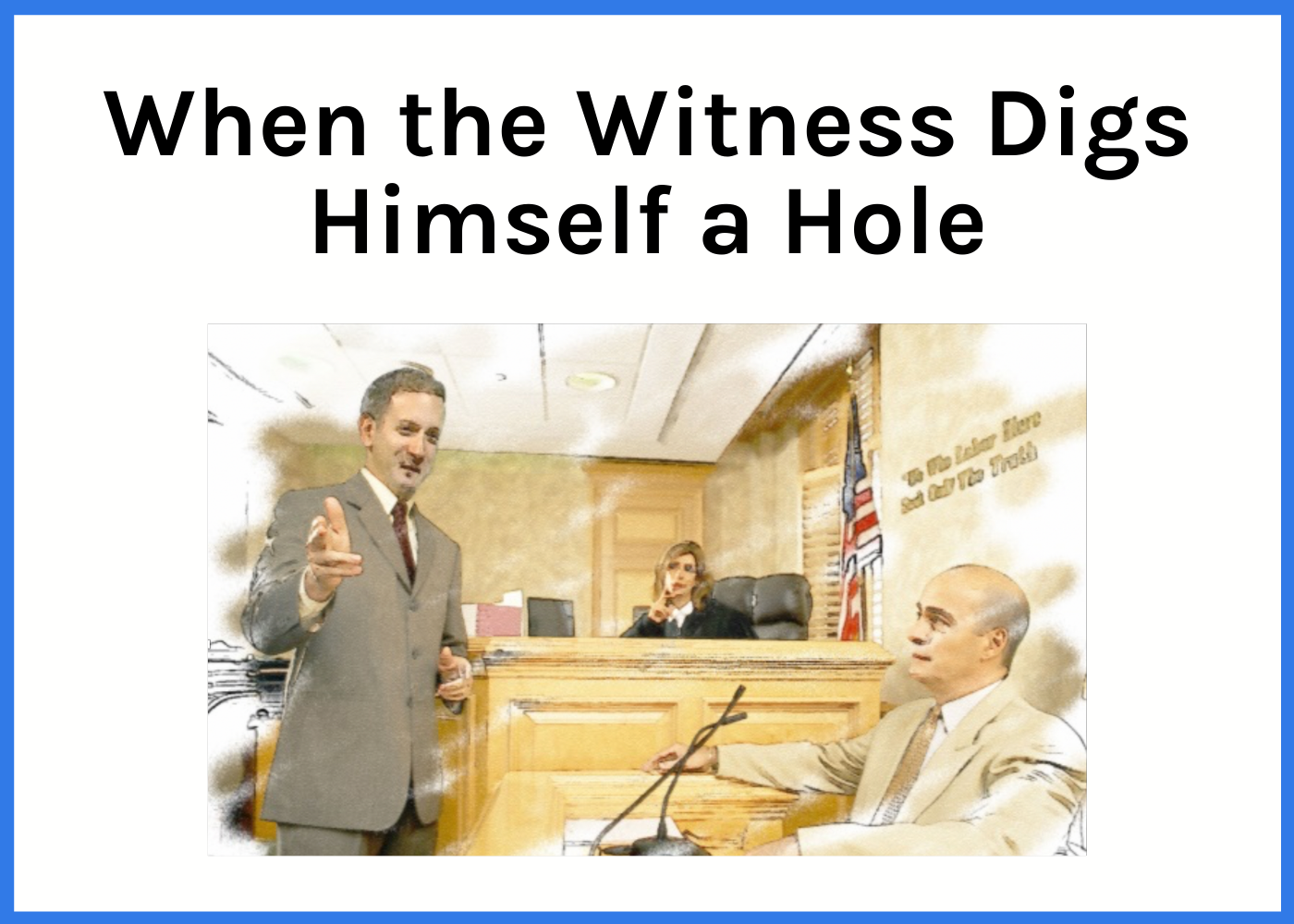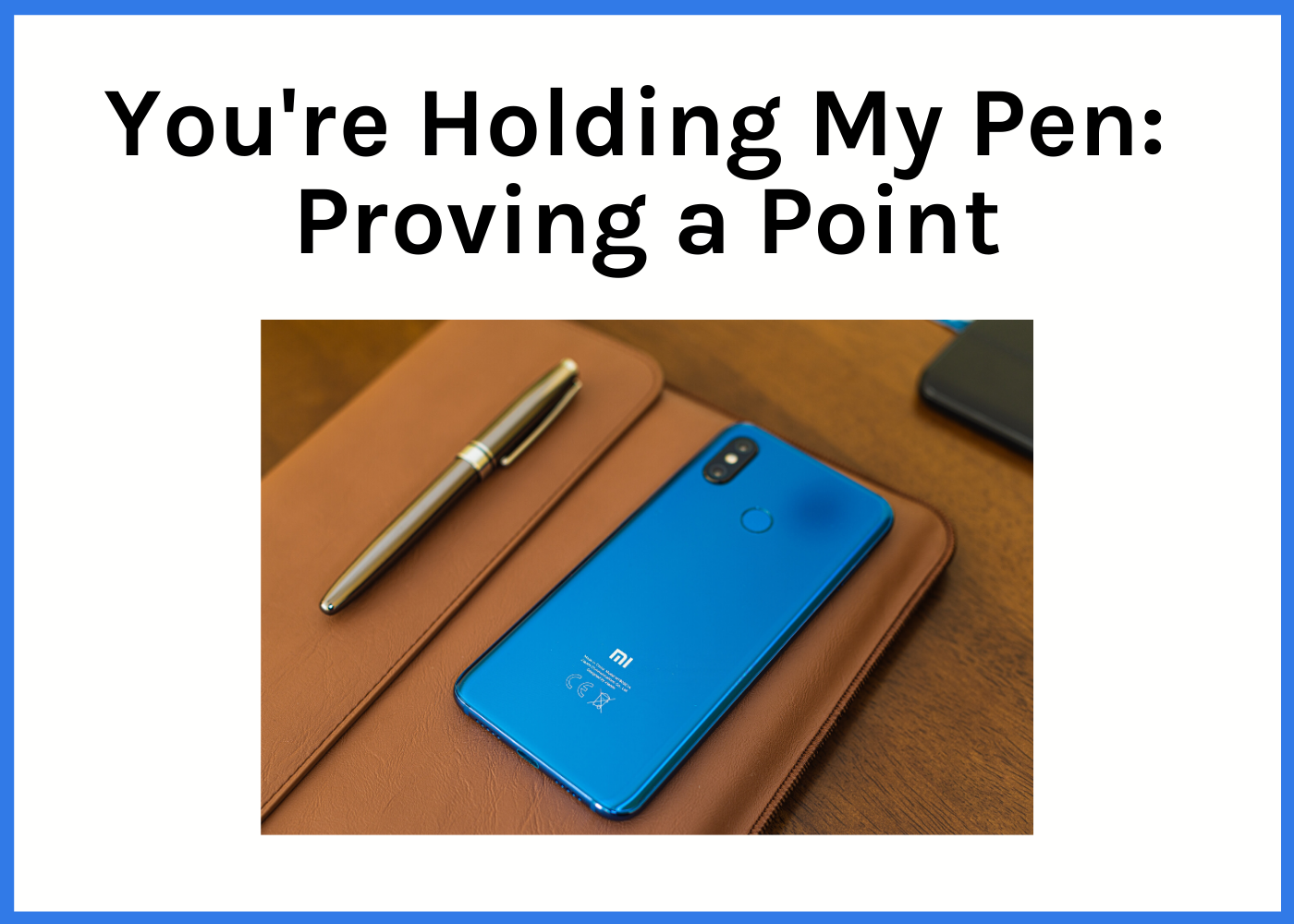When the Witness Digs Himself a Hole
Killer Cross Examination Snippet from P v Morrow
“When the witness is digging himself a hole, keep the shovel in his hands”
The informant took the stand to attempt to finish his “work” for the Straits Area Narcotics Enforcement (SANE) drug team. He thought he’d be cagey and try to argue with me as I cross examined him. Ask those in the attendance whether his caginess or attempt to “talk back to me” worked. I suggest that most in attendance realized that he was only digging himself a deeper a hole. I kept the shovel in his hands.
Here is a summary of just one portion of the killer cross examination of this informant-witness:
- Q: You would lie to get yourself out of trouble?
- A: No.
- Q: You’ve admitted as much under oath in the past, right?
- A: No.
- Q: You testified in oath in {this other case}?
- A: Yes.
- Q: Weren’t you asked this question, “You would like to get yourself out of trouble?” and your answer was, “Yes.”
- A: Yes.
- Q: So you lied earlier today?
- A: No.
- Q: You denied that you’d lie to help yourself get out of trouble and you denied that you said that under oath earlier. Those were lies, right?
- A: Yes, I guess.
- Q: There’s not much to guesswork in that is there?
- A: I don’t know what you mean.
A killer cross examination can expose the witness’s willingness to lie but also by addressing each aspect of the lie, e.g., in the past, in the present, etc., reveals the witnesses willingness to continually lie even in court. When a witness is digging himself a hole, make sure that you keep the shovel in his hands and get him to keep digging.
(This is a summary of an excerpt of one portion of the cross examination of the informant. It is not meant to state that this is an identical transcript or verbatim copy of the transcript.)
Stay tuned from more revelations from the cross examination of the informant in the Morrow case as well as cross examinations of the officer in charge – those too proved to be quite revealing.
Please be aware we are relying on impressions, recollections, memories and interpretations.


